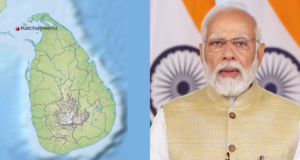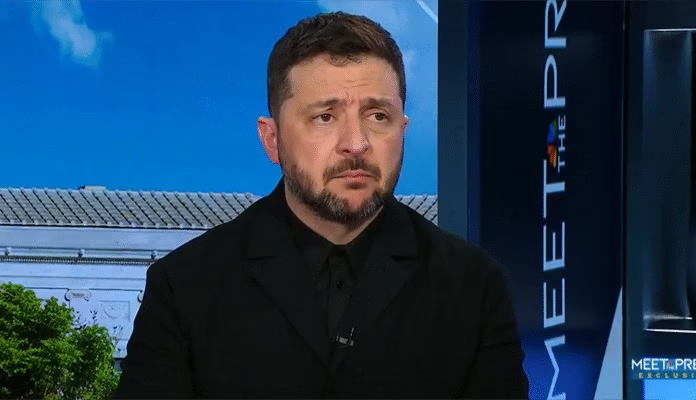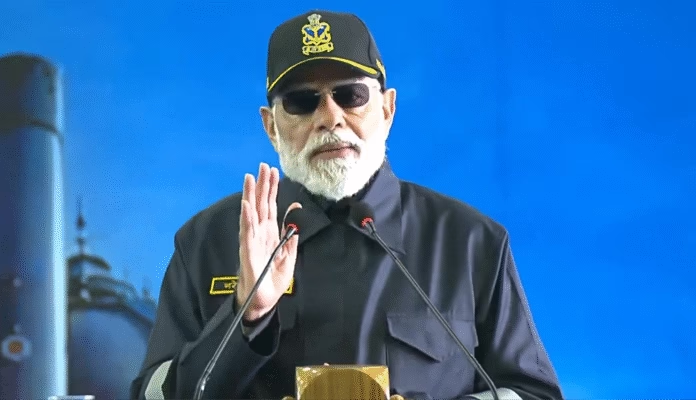 RNS: Prime Minister Narendra Modi has strongly criticized the Congress party for its decision to hand over the Katchatheevu Island to Sri Lanka in 1974. Modi accused the Congress of consistently weakening India’s unity, integrity, and interests over the past 75 years.
RNS: Prime Minister Narendra Modi has strongly criticized the Congress party for its decision to hand over the Katchatheevu Island to Sri Lanka in 1974. Modi accused the Congress of consistently weakening India’s unity, integrity, and interests over the past 75 years.
The Prime Minister’s remarks came in response to revelations from documents obtained by Tamil Nadu BJP Chief K. Annamalai through RTI, which shed light on how India decided to cede control of Katchatheevu Island to Sri Lanka.
In a social media post, Modi described the revelations as “eye-opening and startling,” stating that they show how Congress callously gave away Katchatheevu. He added that this decision has angered every Indian and serves as a reminder not to trust Congress.
The island of Katchatheevu, located in the Palk Strait between Sri Lanka and India’s Tamil Nadu state, has been in the spotlight after four decades.
The Prime Minister’s statement followed the disclosure of documents obtained by BJP Tamil Nadu chief K. Annamalai, suggesting that the Congress did not attach significant value to the small, uninhabited island.
According to reports, Jawaharlal Nehru, a former Prime Minister, once stated that he would not hesitate to completely relinquish claims to the island.
The ruling party in Tamil Nadu, the DMK, an ally of the Congress, alleges that Katchatheevu was “given away” to Sri Lanka without consulting the Tamil Nadu state assembly. There were fervent protests against Indira Gandhi’s decision at the time, citing the historical control of the Ramnad zamindari over the island and the traditional fishing rights of Indian Tamil fishermen.
The Sri Lankan navy has consistently arrested Indian fishermen, leading to allegations of custodial torture and fatalities. Whenever such incidents occur, there is a renewed demand for the retrieval of Katchatheevu, according to media reports.
It’s worth mentioning that, until the 17th century, the island was controlled by the Jaffna kingdom of Sri Lanka. Its authority then passed to the Ramnad Zamindari based out of Ramanathapuram, about 55 km northwest of Rameswaram.
In the British Raj, Katchatheevu was part of the Madras Presidency. In 1921, a dispute arose after a survey marked Katchatheevu in Sri Lanka. This was done to find a solution to the claims of India and Sri Lanka on the island as both countries, British colonies at the time, wanted to set fishing boundaries.
However, a British delegation from India disputed this claim and asserted ownership of the island by the Ramnad kingdom.
In 1974, Indira Gandhi made efforts to resolve the maritime border dispute between India and Sri Lanka permanently.
As part of this resolution, which came to be known as the ‘Indo-Sri Lankan Maritime Agreement’, Indira Gandhi ‘ceded’ Katchatheevu to Sri Lanka. During that period, she believed that the island held minimal strategic significance and that relinquishing India’s claim over it would strengthen diplomatic relations with its southern neighbour.
To this day, the Sri Lankan navy frequently detains Indian fishermen, leading to numerous accusations of torture and even fatalities while in custody. The call to reclaim Katchatheevu is resurrected whenever such incidents occur, emphasising its significance in the ongoing disputes between the two nations.
Tamil Nadu has repeatedly urged the Central governments under various leaderships to retrieve the island from Sri Lanka’s control.
Indira Gandhi’s decision to cede the island to Sri Lanka had met with massive protests in the state.
Following India’s tumultuous involvement in the Sri Lankan Civil War in 1991, the Tamil Nadu Assembly once again pushed for the retrieval of Katchatheevu and the restoration of fishing rights for Tamil fishermen. This issue has consistently resurfaced in Tamil politics since then.
In 2008, J Jayalalitha, the then-leader of AIADMK, filed a petition asserting that Katchatheevu couldn’t be transferred to another country without a constitutional amendment. The petition argued that the 1974 agreement had adversely impacted traditional fishing rights and the livelihoods of Indian fishermen.
In 2011, when Jayalalitha became the chief minister of Tamil Nadu, she introduced a resolution in the State Assembly and later, in 2012, approached the Supreme Court to expedite her petition due to the escalating arrests of Indian fishermen by Sri Lanka.
Notably, Apart from fishing rights, Katchatheevu has been a cause of concern due to China’s growing presence in cash-strapped Sri Lanka. According to experts, the island can allow China a strategic location to influence maritime movement in the area and set up a naval base as part of its aggressive geopolitical ambitions.



